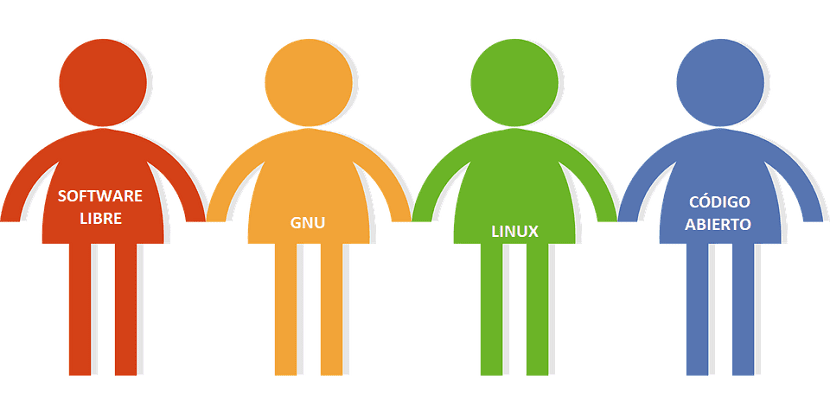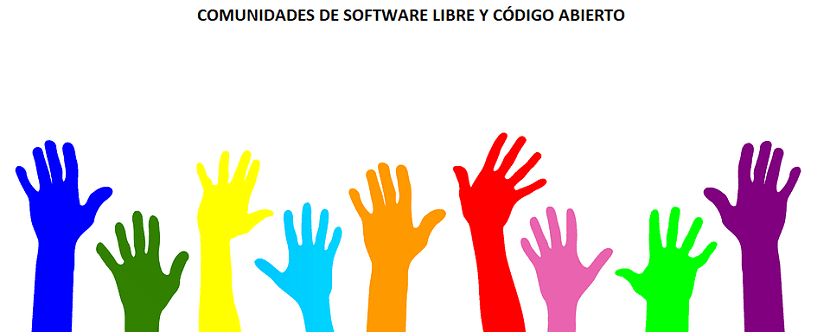
Sustainable and sustainable communities of Free Software and Open Source
In previous articles such as «Debate: Donate or not Donate! This is the dilemma. Don't let Free Software and Free Documentation die. Nothing free is Eternal»We have also touched the vital importance it has for the validity and development of Free Software and Open Source, the act of donating or contributing, to the movement and communities of these products to avoid their rapid disappearance and slow evolution.
Much has been said about whether or not donating is enough. But beyond or not the social or citizen fact of contributing via donations to the movements and communities that develop the products that they like and use, there is the undeniable fact that the world of Free Software and Open Source to survive is being corporatized as an alternative way for its sustainability and sustainability. For this reason, the Free Software and Open Source Communities must also be increasingly "Sustainable and sustainable communities" so that your developments remain in time and are profitable for your developers and contributors.

Introduction
If in time, the Users and Developers (Communities and Movements) want that all Free and Open Source Software does not pass into the hands of Organizations, commercial or not, we should be able to search new management or work models that highlight incentives for all involved.
A current model that can be used by the Free Software and Open Source Communities to become sustainable and sustainable can come from within itself, that is, from the use of cryptocurrencies or a cryptocurrency of its own for said communities and movements.
Cryptocurrencies are a product derived from Free Software that well implemented can reverse and improve the uncomfortable and unpleasant financial situation that are often presented by those who create content, develop applications, provide technical assistance, and promote the use of Free Software, Open Source and GNU / Linux Operating Systems and programs, through their own public websites and / or private, without major monetary rewards in exchange.
For the rest, if this or another model or alternative is not applied, we could see each day more as large corporations or global technology giants of software such as Microsoft, IBM, Oracle, Google, among many others, they go little by little taking over the development of Free Software and Open Source. And even becoming more common than normal, state or government controls, such as the inability to use certain products in this field by blockades or sanctions from some countries to others.
Sustainable and sustainable communities
The Free Software and Open Source Communities have always been a kind of unified social structure of individuals, dispersed throughout the wider society. Whose members work or contribute certain effort (time / money) in support of the creation, evolution and use of Free and Open Source Software.
While at the same time try to preserve the longevity and permanence of these developments through the satisfaction of the current needs of users without compromising their future ability to satisfy their own needs.
In consecuense, Free Software and Open Source Communities must be able to produce beneficial software for users and members, without them ignoring or discarding or making it difficult for them to reimburse, monetarily or financially, the associated costs of time and software and hardware resources invested so that such developments can continue to evolve and be used for as long as necessary.
We must always keep in mind that the participants of the Free Software and Open Source Communities, which in turn must be sustainable and sustainable, obtain many benefits. Not only the software developments itself, as a user. But the ability to influence the direction of the software as a contributor.
Or as creators of documentation and digital multimedia content or support providers. Which to many, benefits level of reputation and visibility, and in some cases even monetary benefits, either through direct participation such as employment or donations received.

Conclusion
We must, all those passionate and enthusiastic users and participants of Free Software and Open Source, strengthen and promoteNot just our communities or movements creating and maintaining software that provides benefits to their members, and other stakeholders, both now and in the future. But also, create and maintain a management or work model in which most of the value of what has been created flows for its own benefit, that is, in your sustainability and sustainability.
Improve the mechanisms of collection, compensation, employment, donations, and why not, until the launch of a cryptocurrency of the Free Software Movement, Open Source and GNU / Linux. A cryptocurrency that allows anyone to buy or sell, to pay or collect, donate or collaborate for an article / publication made or read, to reward the creation of such useful content, its quality and its dissemination.
A cryptocurrency that allows you to buy or sell, pay or collect, donate or collaborate with an application, program or system in the process of development or marketing, or to return the support provided by others to improve, correct or solve something within our systems or free and open applications.
In short, all options are on our table as a Community. We can only implement them efficiently and effectively. And so together we all break forever the paradigm of "Free is Free", and let's change it for a definitive "Free is not necessarily Free, but it is sustainable and sustainable" for all.
I am a Systems Engineer - I compute and if it weren't for Gnu, Linux, free software and open source I would be limited to proprietary rights that would not have allowed me to analyze the source codes and practice with the various flavors of Gnu / Linux or with the Linux kernel nor with the Gnu kernel called Hurd.